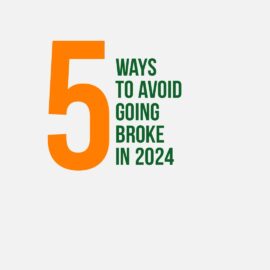An emergency fund is a readily accessible source of assets (cash or other high-liquid assets) set aside to cover unexpected financial dilemmas. Financial dilemmas include unexpected hospital bill, a car break down, the loss of major source of income etc. As much as we do not wish for evil things to happen to us, it’s financially wise to take proper actions to counteract the effects they may have on us.
An emergency fund is a safety net that one can fall back in when unexpected financial obligation arises. An emergency fund is not an investment so you shouldn’t be keeping your funds in risky vehicles to generate high interest on your capital. The major features are safety and liquidity. According to most financial planners, an emergency fund should consist of at least three to six months of your basic expenses. An individual should consider building an emergency fund before investing in high-risk and more volatile assets such as stocks.
You can build up your emergency fund with unplanned income such as bonuses, cash gifts or over-time pay. When an unexpected money comes your way, you can commit a percentage of it to top up your emergency fund. You can also keep them in high interest savings account or money market accounts that can preserve your capital.
Your emergency fund should only address emergencies. Purchase of luxury or trendy items, clothing for an occasion, a trip with your friends and the likes do not constitute emergencies. State what your emergency fund should address and stick to it!
We believe in you!
To your financial independence and freedom
How’s Your Emergency Fund Faring?



